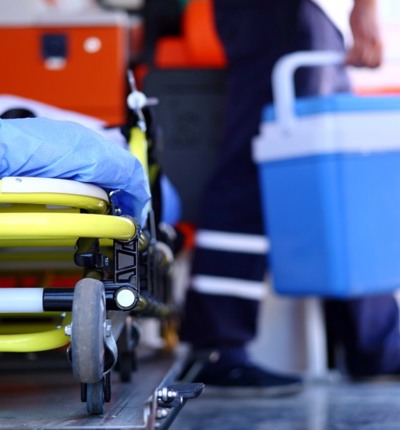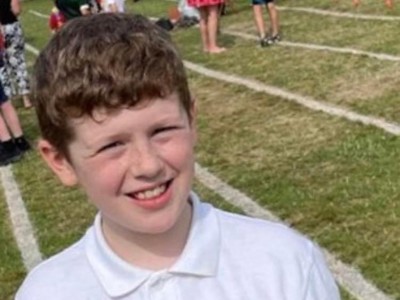
Man suffered brain injury in fall at Accident and Emergency Department
A man who suffered a traumatic brain injury following a fall in the Emergency Department has secured a six-figure sum in a clinical negligence legal claim.
Posted on 29 May 2024
The man, who we have called Thomas, fell in the Accident and Emergency department after he attended on 3 August 2015 when he was aged 71. He had been taken to hospital after he lost consciousness following sudden pain in the left side of his chest and left arm. He had been suffering similar symptoms since 2012, but no cause had been found.
On the day Thomas’ wife called an ambulance, he had been drinking alcohol to manage symptoms of Crohn’s disease.
Basic observations were performed and Thomas was classed as a vulnerable patient.
He was placed in a cubicle but no appropriate falls prevention measures were put in place.
Thomas was coming out of his cubicle, bare footed, when he fell, although no one saw the fall happen. An incident report made after his fall noted that he hit his head on the floor and the impact was heard by staff.
The incident report also indicated that the ED was short of staff at the time; that the cause of the fall was: “Fainting. Loss of balance due to medical condition”; that Thomas was not on the falls care plan/pathway; and that confusion was a factor. The report also stated that nothing abnormal was detected on the CT scans and that he suffered no harm even though there was a significant scalp swelling noted in the CT scan, with grazes to his left shoulder and left elbow noted in the “Admission Body Map” a day later.
Thomas remained confused and lethargic whilst on the medical ward. Three days later an MRI scan was recommended by the consultant but it was not done until 11 August. It showed clear evidence of a traumatic brain injury including bilateral subdural fluid collections and a lesion within the left temporal lobe that had the appearance of neoplasm.
A further head MRI scan was done on 14 August 2015, and showed a haemorrhage in the left temporal lobe which it was noted had also been seen on the CT head scan on the day Thomas was admitted.
The radiologist suggested that the appearance would fit with a contracoup injury with scalp haematoma in the diametrically opposite right parietal region. The bilateral subdural fluid collections had increased and were causing some mass effect. Thomas was subsequently started on dexamethasone steroid treatment.
Thomas’ fall resulted in a moderate traumatic brain injury and led to mobility issues affecting his arms and legs. He now walks with a broad-based gait lacks coordination in his arms and legs. He is able to move around his home but will need mobility aids as he gets older. Outdoors he uses a walking aid.
Thomas has severe memory problems, lack of attention, lack of insight, and cognitive impairment. He depends on his wife for cooking and cleaning. He is unable to manage his financial affairs and his wife was appointed to make important decisions about his legal case on his behalf.
Leigh Day Partner, Emmalene Bushnell represented Thomas through his wife in his clinical negligence claim against West Hertfordshire Hospitals NHS Trust. Emmalene argued that the hospital was negligent in failing to take adequate care of Thomas when he was admitted to the ED in August 2015 and that there was no appropriate falls prevention despite his vulnerable state.
The Trust admitted breaching its duty of care in that it failed to carry out a falls risk assessment and implement a falls care plan within six hours of his admission to the ED in August 2015. It did not admit causing the fall.
The claim was settled for a six-figure sum.
Emmalene Bushnell, clinical negligence specialist and partner at Leigh Day who represented Thomas and his wife, said:
“I am delighted that we were able to secure a significant settlement for Thomas in respect of the injuries he suffered as a result of his fall. The compensation will provide for his care needs, which had previously been provided by his wife and allow essential adaptions to the home where Thomas and his wife have lived for many years."
Thomas’ wife said:
“Everything was so professional at Leigh Day. The team were very helpful at all stages, I had the feeling of being in the right hands. I felt that Thomas’ case was safe with Leigh Day and that his case mattered to them.”
Leigh Day worked on the case with Nathan Tavares KC of Outer Temple Chambers.

Emmalene Bushnell
Emmalene is a partner and experienced clinical negligence lawyer with over 15 years' experience.



